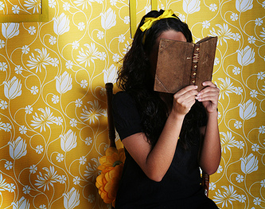
Traci Pierce, Ed.D.
Chief Schools Officer
Lake Washington School District
Redmond, Washington
January 28, 2010
Dear Dr. Pierce:
We're writing to express our concerns about the handling of the Studio East theatrical performance at Robert Frost Elementary School. We understand that a performance of Emperor’s New Clothes was canceled because the behavior of some of the characters is not in line with the expected behavior of students, and students might confuse what they see characters do on stage with what is acceptable for them to do at school. Snow White and the Black Forest was agreed on only after certain scenes considered offensive – including a song performed by dwarfs about tall people – were removed. The principal’s stated rationale for the decision was that the plays as written “were not supportive of the Human Dignity policy, the anti-harassment policy, and our Peace Goals.” In our view, denying students the pleasure and wisdom of age-old fairy tales is a misguided way to support the school’s human dignity policy. Not only does the school’s action raise serious First Amendment questions, it defies common sense and is likely to undermine the goals the school seeks to promote.
As any parent knows, children learn early on to distinguish fiction from reality. Many parents have read their children books like Good Night Moon and In the Night Kitchen. These books don’t cause children to think that rabbits can talk or that children float in the air, any more than sitting through an unexpurgated performance of Snow White would make children believe in talking mirrors, magic spells, and dwarves named Grumpy, Happy, Sneezy, Sleepy, etc.
It is widely accepted by experts in early childhood development that make-believe, or creative play, is crucial to young children’s development. In fact, the importance and appeal of make-belief is reflected in the hours of imaginative play it provides even for very young children. Fairy tales stimulate children’s imagination and provide a highly fictionalized, and thus non-threatening, view of human behavior and activity. They use fantasy to explore issues like good and bad, fear and anxiety, stereotyping and prejudice; they show characters overcoming great adversity, offer themes of hope and strength, teach students to see beyond superficial explanations, and provide opportunities to clarify the difference between reality and fantasy. Moreover, theater uses dialogue and live characters, allowing students to comprehend the stories on multiple levels. Rather than demanding that the plays be re-written to omit the “objectionable” parts, the school could encourage students to explore the characters’ behavior based on the rules and values taught in school.
Based on your email to Andrea Duffield, we think there may be some misunderstanding about how the Supreme Court applies the law in cases like this. The cases you cite (Fraser, Hazelwood and Morse) apply only to student speech – what students are permitted to say (and write) – so they provide limited guidance with regard to restrictions on what students can read or learn. Although schools have extensive authority over student conduct and speech in school, and over the curriculum, the one thing they may not do is to discriminate against disfavored ideas, or cast a “pall of orthodoxy over the classroom.” Keyishian v. Board of Regents, 385 U.S. 589, 603 (1967). In a case involving censorship of books in a school library, the Court articulated a principle that is equally applicable here:
Our Constitution does not permit the official suppression of ideas. Thus whether petitioners' removal of books from their school libraries denied respondents their First Amendment rights depends upon the motivation behind petitioners' actions. If petitioners intended by their removal decision to deny respondents access to ideas with which petitioners disagreed, and if this intent was the decisive factor in petitioners' decision, then petitioners have exercised their discretion in violation of the Constitution.
Board of Education v. Pico, 457 U.S. 853, 871 (1982)(emphasis in original, footnote omitted).
The school has many tools available to inculcate the value of human dignity, but censorship is not one of them. Moreover, freedom of expression is itself essential to human dignity, as our Constitution and the Universal Declaration of Human Rights recognize. The ability to think and express oneself according to the dictates of one’s own conscience is the very essence of freedom, and freedom is essential to human dignity.
We appreciate the close attention you have given this matter, and your responsiveness to parents like Ms. Duffield. I understand you are rethinking the district’s policy. We're happy to offer any resources, information or assistance we can provide in that process, in the hope that human dignity and free expression can co-exist comfortably in the Lake Washington School District.
Sincerely,
Joan Bertin, Executive Director, National Coalition Against Censorship.
Millie Davis, Division Director, Communications and Affiliate Services, National Council of Teachers of English
Chris Finan, President, American Booksellers Foundation for Free Expression
Larry Siems, Director, Freedom to Write and International Programs, PEN American Center
Ralph Sevush, Executive Director, Dramatists Guild of America
*Image by Miss Indi Pop


